Upon the announcement that Creighton University offered the opportunity to visit England and gain an in-depth glimpse into UK law, many of us quickly submitted our applications. It was clear that this would be a once-in-a-lifetime experience, one that would allow for immersion in English legal traditions in a way few Americans ever have the opportunity to experience.
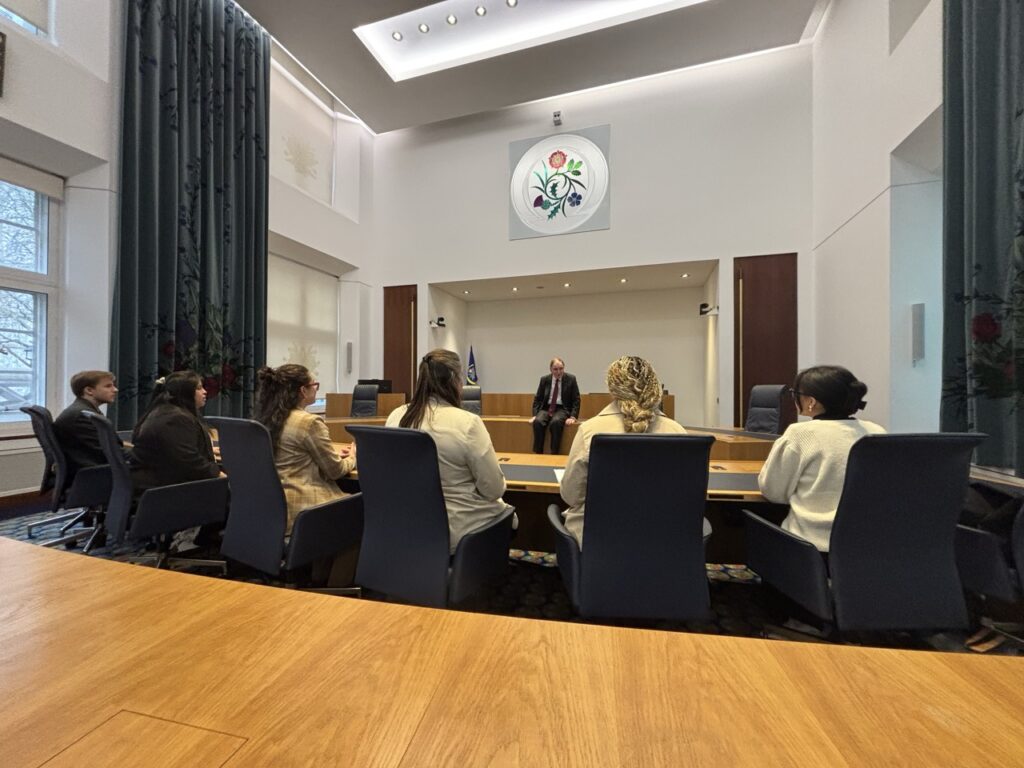
After being accepted, our group spent several months studying UK law and practising cross-examinations more times than we could count. Still, a sense of uncertainty remained about what to expect upon arrival. Even before leaving the United States, we anticipated our trip to Cumberland Lodge would be eventful, especially as we departed Nebraska in the aftermath of a blizzard. Though some encountered travel delays, we remained undeterred, eager for the journey ahead.
Walking through the heart of London proved unforgettable, even for those who had previously visited. There was something extraordinary about walking streets lined with buildings hundreds of years older than anything back in the United States. That awe only deepened during our long bus ride to Cumberland Lodge. Upon arrival and during our visit to Middle Temple, the atmosphere was humbling. Being surrounded by esteemed members of the UK legal community offered an immersion into legal culture that no classroom could replicate.
One of the most striking aspects of UK legal practice is the reliance on the honour system. Even the dining hall at Middle Temple functions with trust among barristers and guests. The tone of mutual respect was evident both inside and outside of the courtroom. For example, the use of the phrase ‘learned friend’ when addressing opposing counsel reflects a baseline of civility that stands in contrast to the increasingly adversarial tone often seen in American legal settings.
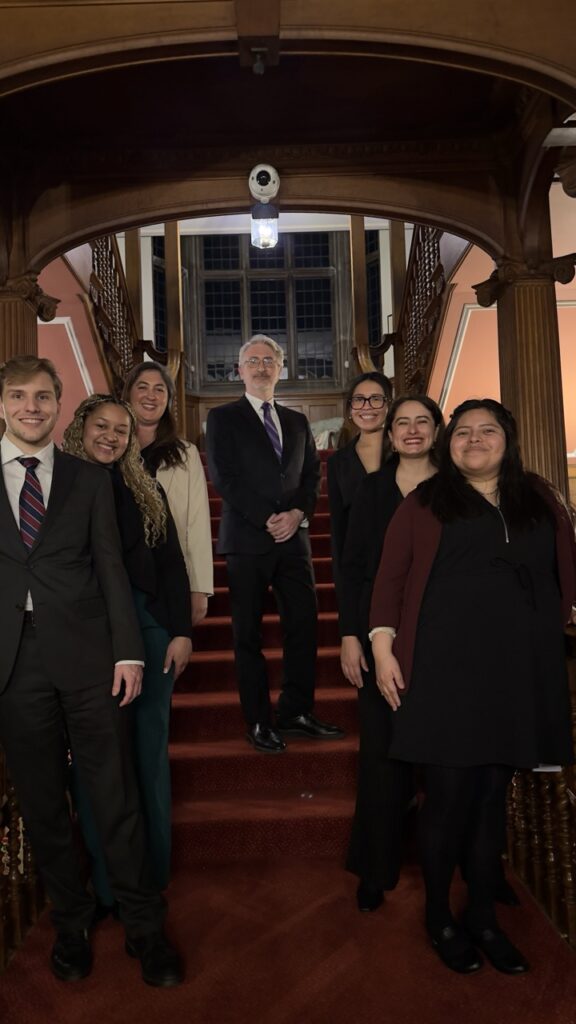
This experience also challenged preconceived notions of what it takes to succeed in law. Popular culture often idolises coldness and detachment, suggesting that success requires harshness. Yet, throughout the Advocacy Weekend, we witnessed a different model—one where excellence coexisted with kindness. One of the most memorable lines shared with us was, ‘You’ll find that many of the most celebrated people were also just kind people.’ That message continues to shape our vision of the kind of lawyers we strive to become: individuals who make others feel welcome and valued, just as the barristers did for us.
Preparing to advocate for a client for the first time can be intimidating. There is pressure to appear confident, to sound authoritative, and to represent with skill and precision. Even among those with public speaking experience, the stakes feel higher in a courtroom setting. During our time at Cumberland Lodge, we learned to embrace this challenge. With the guidance of expert coaches, we gained not only practical feedback but also a renewed appreciation for the art of advocacy.
Watching one another and learning from each other’s strengths and missteps fostered a collaborative environment. The immediate feedback we received after the examinations allowed us to apply corrections on the spot, reinforcing both our skills and confidence. Advocacy is not just about speaking well; it is about mastering control of oneself, of the witness, and of the narrative.
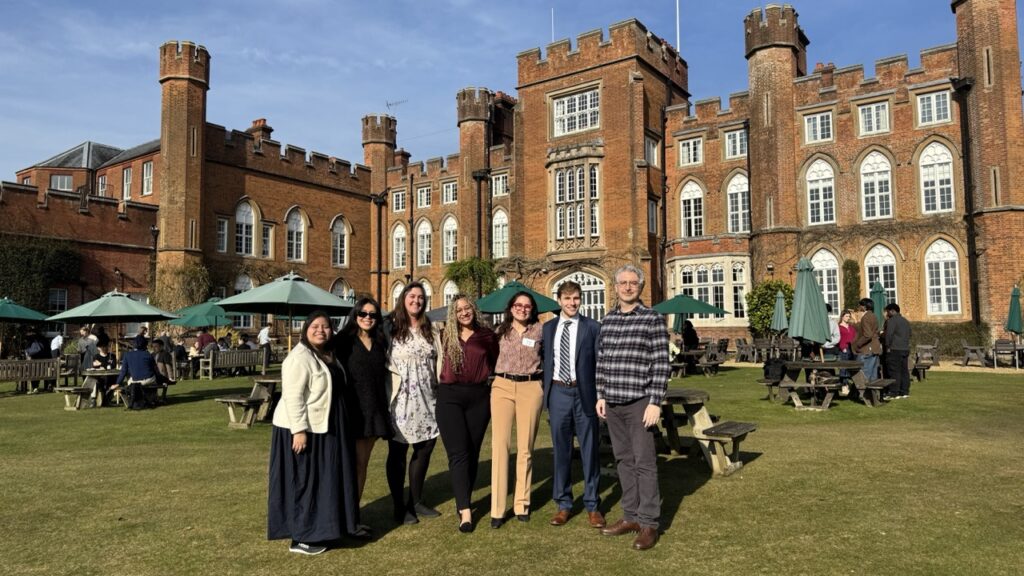
Practising alongside barristers and learning from masters in the field made our mock examinations particularly meaningful. The opportunity to train in such an esteemed setting elevated our understanding of advocacy in a way that theoretical learning alone cannot.
Another key insight came from observing the structure of the English legal education system. UK students are introduced to oral advocacy at an earlier stage, frequently participating in mock trials and oral arguments. These exercises help build confidence and prepare them to perform under pressure. In contrast, American legal education tends to emphasise legal theory, case analysis, and written work in the early years, often leaving oral advocacy to be developed later in internships or clinics. This contrast prompted many of us to reflect on how practical experience could be better integrated into US legal education.
One student noted the personal challenge of filling silence with unnecessary words. Trainers noted that well-placed pauses could enhance delivery, highlight essential moments, and allow reflection. That shift in mindset reframed silence as a strength rather than a weakness. The honest, real-time feedback we received helped uncover habits we weren’t even aware of and offered actionable strategies for growth.
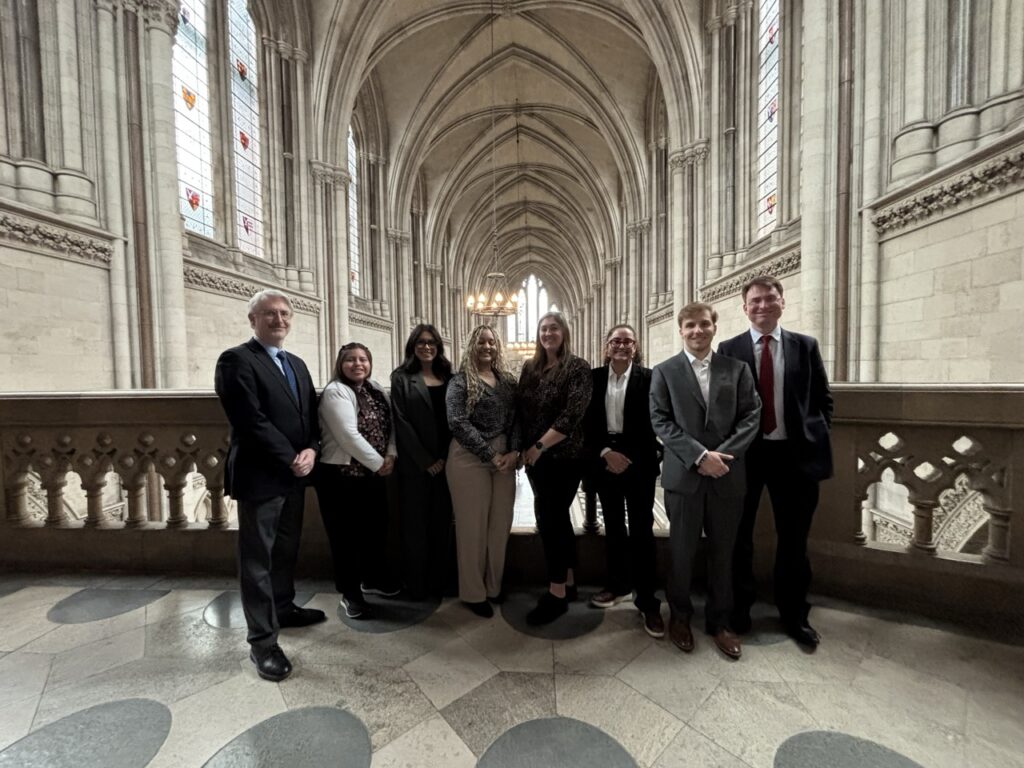
Interacting with students and legal professionals from the UK legal system also broadened our understanding of how advocacy differs across borders. These cross-cultural insights were both educational and inspiring, reinforcing our shared commitment to justice across legal traditions.
Our experience at Middle Temple’s Advocacy Weekend left a lasting impact. We are deeply grateful for the opportunity to learn from seasoned practitioners whose mentorship helped refine our skills beyond what we imagined possible. The immersive nature of the program provided a hands-on experience that deepened our understanding of the law and strengthened our sense of purpose.
One of the most enduring lessons we took from the weekend was the importance of adaptability. The contrast between the UK’s emphasis on politeness and the often-confrontational American courtroom dynamic became especially apparent during breakout sessions. In these sessions, we were challenged to strike a balance between civility and assertiveness. Master Bernard Richmond offered especially valuable insights, encouraging us to move beyond rigidly scripted questions and instead develop a more fluid, conversational style that fostered dynamic exchanges with witnesses.
Most importantly, we left with a sense of connection to each other, to the legal professionals we met, and to a global community of aspiring advocates. The lessons we learned and the friendships we formed will continue to influence our paths as future lawyers. We return to the US not only as students who gained new skills, but as individuals reaffirmed in our commitment to justice, collaboration, and the shared responsibilities of the legal profession.
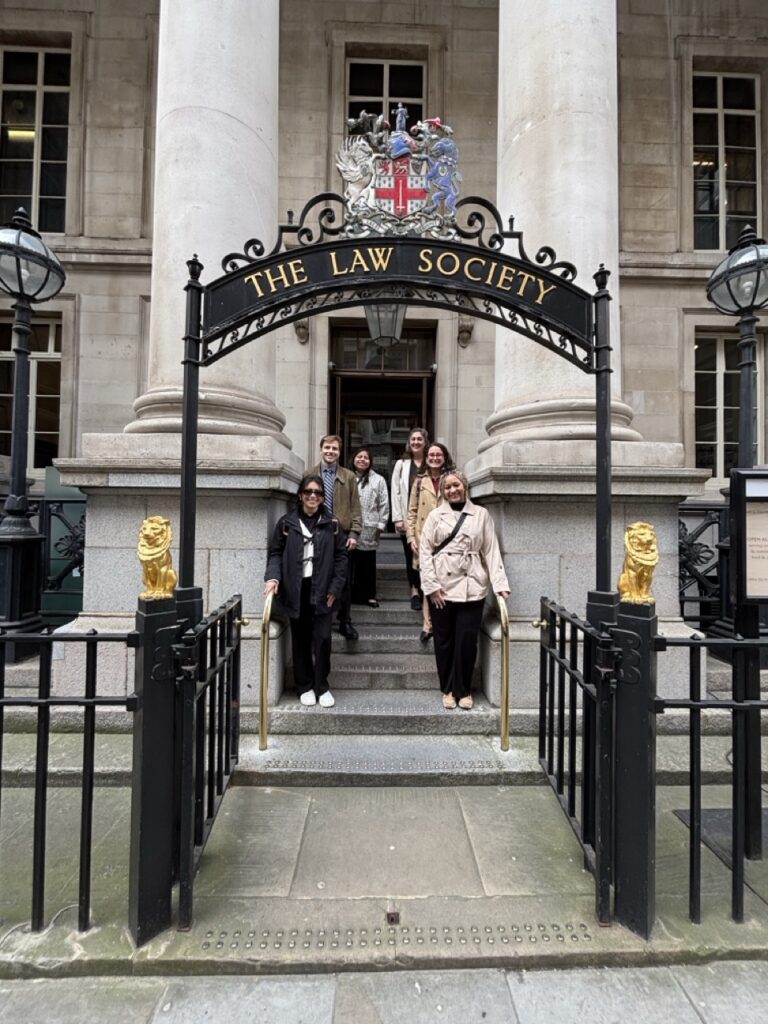
Renata of Nebraska is a Juris Doctor candidate at Creighton University School of Law, graduating in May 2025. She is committed to advancing equity and sustainability through her legal work, dedicating herself to addressing complex legal challenges in land use, water, and international law.
Thomas graduated from the University of Nebraska-Lincoln with a bachelor’s degree in political science and government. He is scheduled to graduate from the Creighton School of Law in May 2025. After graduation, he will join his current firm, where he will practice estate planning, probate, and company formation.
Aleigha will be graduating in May 2025 from Creighton School of Law. After graduation, she will work as a Deputy District Attorney for the Boulder County District Attorney’s Office, starting in August, after taking the Colorado Bar Exam.
Laura immigrated to the United States during primary school. She and her family of eight lived in Wisconsin for over 12 years before she moved to Nebraska to attend law school. She is scheduled to graduate from Creighton University School of Law in December 2025. She is interested in patent litigation and corporate law.
Anelise Trippe is from Northern Colorado and enjoys travelling the world. She hopes to pursue a career in international law and is very grateful to Middle Temple for the opportunity to attend the Cumberland Lodge advocacy weekend this past Spring.
Originally from Dallas, Texas, Alyssa graduated from the University of Oklahoma with a Bachelor’s degree in International Security Studies. Now in her third year at Creighton University School of Law, Alyssa is set to earn her Juris Doctor in December of 2025 and plans to pursue a career in immigration law.

